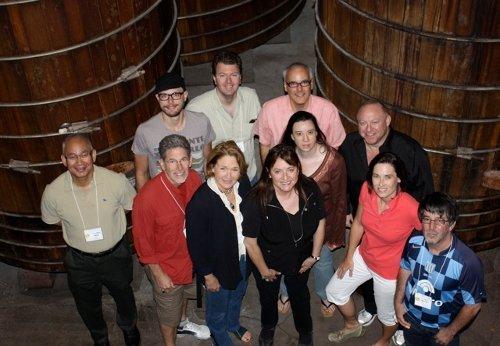THE ARTICLE HAS BEEN CLARIFIED REGARDING THE LENGTH OF THE STATE TRIBAL GAMING MONOPOLY.
UPPER LAKE, Calif. – In a decision that could have implications for other California gaming tribes, the US Department of the Interior has denied the Habematolel Pomo of Upper Lake's proposed gaming compact with the state, a move that will push back the tribe's planned casino project.
The decision was handed down last week in a letter signed by Assistant Secretary for Indian Affairs Larry Echo Hawk, who asserted that the proposed compact – approved by the California Legislature last year – violated the Indian Gaming Regulatory Act (IGRA).
“This is devastating but I don't think we're done,” Tribal Chair Sherry Treppa told Lake County News in a weekend interview.
The Habematolel Pomo have proposed to build a $25 million, 34,000-square-foot facility with 349 machines, six game tables, retail shops and restaurants on an 11.24-acre parcel on Highway 20 outside of Upper Lake, as Lake County News has reported. The tribe has a compact for Class III gaming, where the machines have the user playing against the house.
County Administrative Officer Kelly Cox, who has worked closely with the tribe over the last several years, said he was disappointed with the Department of the Interior's decision.
“I think that the tribe has tried to do everything right and it's been a very long process and I think they deserved a better outcome,” he said.
Cheryl Schmit, director of Stand Up California, a group that monitors Indian gaming across the state, said the Habematolel are seeing the impact of court decisions involving the Rincon and Colusa tribes that may end up having a negative impact on residents across the state.
Specifically, those two court cases faulted California's negotiations for revenue sharing agreements with tribes. “The citizens of California are not going to be able to be reimbursed now for the significant off-reservation impacts” of casinos,” she said.
If such decisions hold, “We are the losers,” Schmit said of the state's residents.
Echo Hawk's decision letter was offered on the tribe's third submission of its compact for approval, Treppa said.
The state Legislature approved the tribe's first compact with the state last December. The compact terms included the tribe's agreement to pay the state general fund 15 percent of the casino revenues, with an allowance to have as many as 750 gaming machines. However, if the tribe were to increase its number of machines, it agreed to pay $900 for every machine from 350 and above into the state's revenue sharing fund.
State approval cleared the way for the compact to go to the Department of the Interior for the final approval, and Treppa said the tribe initially submitted the compact to the agency on Jan. 12.
However, Department of the Interior officials raised questions about the compact's revenue sharing provisions, a point acknowledged both by Treppa and Echo Hawk's decision letter, signed Aug. 17.
Treppa said the tribe withdrew its first submission in order to resubmit it with additional documentation on Feb. 25, but they again had to withdraw it on April 8, before the 45-decision period ran out, because Interior officials continued to question the compact's provisions. The compact was submitted a third time on July 6, Treppa said.
Treppa said the tribe found out that Washington policymakers wanted to send a message to the state by denying the compact. The tribe sought guidance from Echo Hawk and his staff on what would constitute an acceptable compact.
She said they were told to read Echo Hawk's letter and that Interior officials would meet with them in a few weeks. A copy of the letter also was to be sent to the state.
At the same time, “We were also told that what would be an acceptable compact 'has not been adequately determined by the Department,'” Treppa said.
Echo Hawk said in his letter to Treppa, “We review revenue sharing requirements in gaming compacts with great scrutiny,” and consider if the state has offered in return meaningful concessions, which he identified as items the state otherwise isn't require to offer.
He said an important part of his agency's analysis on the issue came from the Ninth Circuit Court opinion Rincon Band of Luiseno Mission Indians of the Rincon Reservations versus Schwarzenegger, handed down in April. That ruling, said Echo Hawk, provided “guidance on the extent to which revenue sharing and variations on tribal gaming exclusivity constituted 'meaningful concessions' under IGRA.”
Treppa said the Department of the Interior was under the misconception that the tribe was receiving an entitlement by being able to receive state revenue sharing funds – reportedly about $1 million annually for tribes with less than 350 gaming machines. It only would be considered an entitlement under the 1999 compacts, she said.
The tribe also negotiated an exclusivity clause with the state wherein if a Class III nontribal gaming interest came within 100 miles of the Habematolel facility, it would end the revenue sharing requirement because it would impact the tribe's ability to maintain its net revenues, she said.
Echo Hawk's letter explained that, under IGRA, the Interior secretary has 45 days to approve or disapprove a compact. If the secretary doesn't specifically disapprove the document, it's considered to have been approved. The 45-day comment period for Habematolel's third try at compact approval ended last Friday, Treppa said.
Treppa suggested that the small tribe with 211 members – with nearly 60-percent unemployment among its membership – is in the midst of what appears to be a standoff between the US government and the state of California. She questioned why federal officials simply didn't wait to sit down and talk with a new governor beginning next year.
It's a clear policy change from what has been done in the past, Treppa said.
“We have become a pawn in their fight,” she said.
Treppa said the tribe will be pushing hard for clarification from the Department of the Interior. “I believe that there is going to be a backlash with this decision,” she said.
Echo Hawk, who formerly served as Idaho's attorney general, advocated for changes to that state's constitution to prevent Class III compact negotiations with tribes, according to Indian Country Today. Concerns that he would take an anti-gaming approach in his assistant secretary's job led to criticism of him from some corners during the confirmation process.
The impacts of the Rincon decision
In the 97-page Rincon decision, the tribe sued the state over the terms of a renegotiated gaming compact in which it was seeking to increase its gaming devices from 1,600 to 2,500. The state agreed, but sought 15 percent of the net win on the new machines and an additional 15 percent annual fee based on Rincon's total 2004 revenue, the court document stated.
In exchange, the state offered Rincon a 25-year extension of its compact and an “exclusivity provision,” the latter a provision that the tribe argued already was provided under Proposition 1A.
In a majority decision, the court decided that Schwarzenegger had negotiated in bad faith, and that the state's revenue requirements constituted “an impermissible demand for the payment of a tax by the tribe.”
The argument of bad faith and taxation, the court explained, could only be successfully countered if the state could prove that the revenue demanded in the compact was to be used for “the public interest, public safety, criminality, financial integrity, and adverse economic impacts on existing gaming activities.”
The state also had to prove the compact's terms were consistent with IGRA, the stated purposes of which include ensuring that tribes are “the primary beneficiaries of gaming and ensuring that gaming is protected as a means of generating tribal revenue.”
The Ninth Circuit Court maintained that Schwarzenegger had failed to successfully make those arguments. In particular, the court found that the state's revenue sharing would result in $38 million in net revenue for the state but only $2 million for the tribe, making the state the primary beneficiary, not the tribe, as the IGRA requires.
The court's decision noted that the Department of Interior has approved other compacts with California tribes that included general fund revenue sharing provisions, but had done so “reluctantly.”
“Often, the Secretary simply permits compacts with revenue sharing provisions to go into effect 'only to the extent they are consistent with IGRA,' thus leaving open the precise question at issue,” the court noted.
While the court noted that it was mindful that states like California “are currently writhing in the financial maw created by the clash of certain mandatory state expenditures at a time when state revenues have plummeted from historic levels,” it also stated it was “keenly aware of our nation’s
too-frequent breach of its trust obligations to Native Americans when some of its politically and economically powerful citizens and states have lusted after what little the Native Americans have possessed.”
The court asserted that when Congress created IGRA, it “anticipated that states might abuse their authority over compact negotiations to force tribes to accept burdens on their sovereignty in order to obtain gaming opportunities,” which is why the good faith requirement exists, and why IGRA condemns the kinds of state taxation demands the court found Schwarzenegger made of Rincon.
The Ninth Circuit Court's decision wasn't unanimous, and Judge Jay Bybee wrote a dissent in which he suggested that the Rincon decision “does not just upset the apple cart – it derails the whole train.”
He continued, “If the majority is correct, then there is nothing for California to do but to authorize whatever devices the Band wants. The Band wins. Everything.”
Bybee didn't find that California's revenue sharing proposal was a tax, and said IGRA does not address whether states and tribes may include revenue sharing in their negotiations – although it does allow them to discuss provision directly related to gaming activities, and the court itself previously had held that parties could negotiate over “fee demands.”
“The majority now holds that such fee demands cannot include general revenue sharing derived from the operation of gaming activities, but are limited to fees spent on the regulation of gaming alone. This restriction takes from the State its primary incentive in negotiating gaming compacts with the tribes,” Bybee wrote.
Bybee also didn't find that California negotiated in bad faith, since its constitution granted tribes the exclusive right to offer Nevada-style gaming.
With the state offering Rincon more than a 50-percent increase in gaming machines and the 25-year compact extension, Bybee suggested that such terms were within the range of good faith negotiations.
“Of course, whether the Band should accept the State’s offer is a very different question from whether the State has negotiated in bad faith,” he wrote. “But absent the majority’s intervention, both sides would have strong incentives to continue negotiations.”
Bybee said the revenue sharing provision that the court majority struck from the negotiations is found in 15 other California tribal compacts that the state recently had negotiated or renegotiated, all of which the Secretary of the Interior had approved, which could lead the tribes to arguing that their compacts must now be renegotiated.
He said it also would affect every state where compact negotiations have included revenue sharing provisions – among them, Connecticut, Florida, Michigan, New York, New Mexico, Oklahoma and Wisconsin – that the Interior secretary also had approved.
“The result is going to be chaos as tribe after tribe seeks to reopen negotiations concluded and duly approved,” Bybee said. “Nothing in IGRA compels our intervention in these negotiations.”
He said he expects legal challenges to similar agreements to result throughout the United States as a result of the court's majority decision. Such suits “will eat up State, tribal, and federal resources and will unsettle dozens of mutually beneficial revenue-sharing provisions that have fed both tribal coffers and revenue-hungry state treasuries.”
“The Rincon decision did impact us, but it shouldn't have,” said Treppa, noting that the tribe's discussions with Interior official centered on the same revenue sharing issues raised in the lawsuit.
If federal officials are suggesting that no amount of revenue sharing should be paid, “that's even more concerning,” said Treppa, noting that no tribal compact would get through, and there are many up for renegotiation.
Habematolel is the first tribe to have its compact turned down since the Rincon decision, Treppa said. She also believes that had a larger and more influential tribe been involved, the compact would have been approved.
The Ninth Circuit Court denied a request from Schwarzenegger to hear the case again, with the case now reportedly headed to the US Supreme Court.
Schmit said the decision could mean that the 1999 compacts won't be renegotiated, and it raises questions about the justification for the tribal gaming monopoly that's been in place for 10 years. She questioned if the state should expand gaming to everyone or is there a way to get tribes to recognize the need for being better neighbors.
The Interior secretary previously signed four ballot measures allowing four of the state's largest gaming tribes – Pechanga, Agua Caliente, Morongo and Sycuan – to expand their operations in exchange for $300 million in revenue to the state annually. “Those guys aren't paying the money that they promised they were going to pay,” Schmit pointed out.
The lawsuits will make it more difficult for tribes to reach compacts with the state. “What's in it for the state now? Nothing,” she added.
Then, last week, on Aug. 20, the Cachil Dehe Band of Wintun Indians of the Colusa Indian Community and the Picayune Rancheria of the Chukchansi Indians, who sued the state and the California Gambling Control Commission, were successful in arguing for a higher limit to the number of gaming machine permits.
The result, said Schmit, is that another 8,000 slot machines will be added to the statewide cap, currently at around 75,000.
What's next for the tribe
Treppa said the compact the tribe negotiated with the state is “dead” and they must go back to the negotiating table, with the revenue sharing and exclusivity the main points that must be reconsidered.
They're concerned, however, about having to spend a lot of time and money to continue a process when they might still be disapproved, Treppa said. Another unknown – how the state's new governor might approach such negotiations.
The tribe also is communicating with Congressman Mike Thompson's office, which Treppa said has contacted the Department of the Interior to express its concerns.
She said the tribe is working with its lender, Luna Gaming, to keep the project on track. She believes the lender will continue funding their efforts as they renegotiate the compact. Luna Gaming, a Michigan-based gaming management company, has been involved in the project since 2005.
All work has since stopped on the property where the casino is proposed to be located. Treppa said they broke ground earlier this year.
“We began construction and we were sent a letter by the state telling us to stop construction because we didn't have an approved compact” by the Department of the Interior, but Treppa said the tribe disagreed, sent the state a letter explaining its position and continued.
When it became clear that the compact wasn't going to be approved, however, they had to comply with the request to stop construction, and the lender didn't want to fund any further improvements, she said.
The tribe is considering other options, such as scaling its compact back to a Class II agreement for facsimile slot machines that are more like electronic bingo, with people playing against each other, Treppa said. San Pablo has such a gaming facility, and it doesn't require payments to the state.
The county and the tribe reached a memorandum of understanding in 2006 that constitutes an in-lieu contribution equivalent to the amount of property tax that would have been paid on the 11-acre casino site, as Lake County News has reported. The funds are meant to cover public safety costs.
The tribe also contributed $378,000 to the Lake County Sanitation District for system upgrades and agreed to pay a small amount to support the county's marketing department, which later will be replaced by an amount equal to the county's 9-percent transient occupancy tax if they build a lodging facility, the county reported.
“They've been an outstanding group to work with, right from day one,” said Cox.
Treppa said the county “has been stellar in support of us,” noting the tribe won't turn its back on the county and the memorandum of understanding it negotiated with county officials. While that agreement still stands, the payments will be postponed, since they're based on compact approval.
Cox said he anticipates the tribe eventually will get the compact through, but he felt it was a shame they were put through so many delays.
Treppa said she'll start beating the pavement again in Sacramento to get the process going.
“We certainly are not of the mind to give up,” she said, adding, “Sometimes things happen for a reason.”
E-mail Elizabeth Larson at This email address is being protected from spambots. You need JavaScript enabled to view it. . Follow Lake County News on Twitter at http://twitter.com/LakeCoNews and on Facebook at http://www.facebook.com/pages/Lake-County-News/143156775604?ref=mf .












